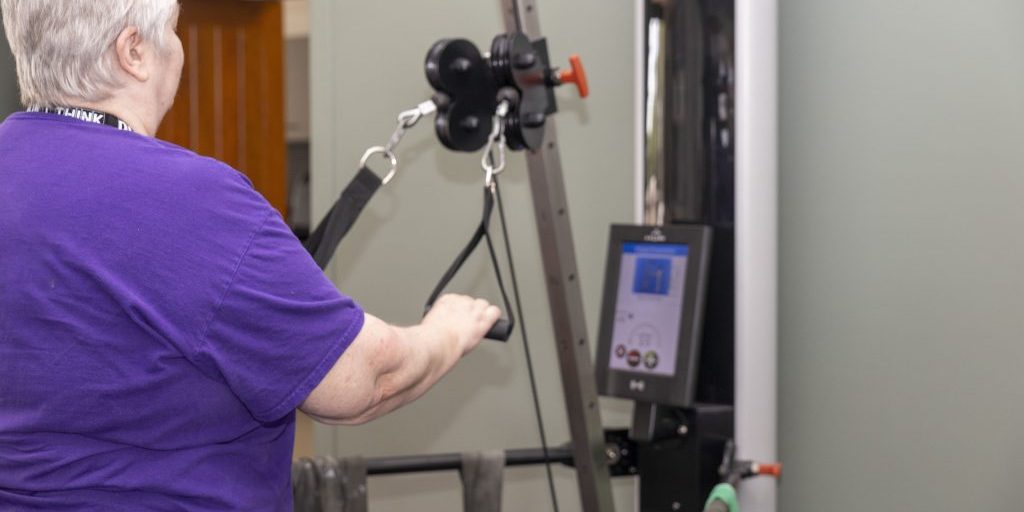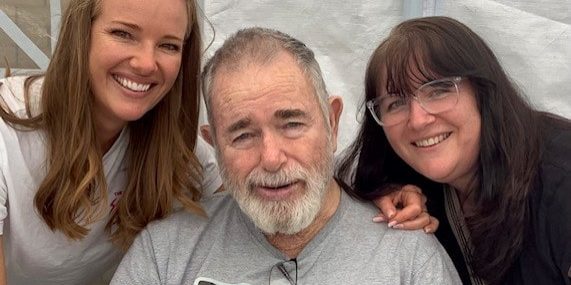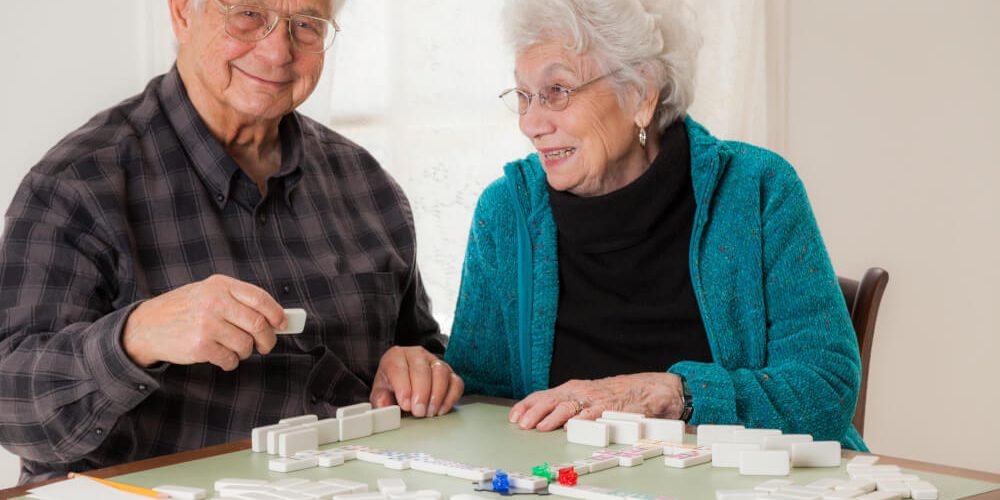At Alzheimer’s Queensland (AQ), we understand the importance of aging well.
As we get older, changes to our lives may lead us and our loved ones to reassess our future and adjust our lifestyle accordingly. We may need to make decisions about where to live and the type of care we require. AQ offers a range of living options and is dedicated to enabling those aged over 65, and people living with dementia, to find the right arrangement and lifestyle. We provide a restorative and wellness approach to services to best suit individual needs.
Choosing an alternative living arrangement can be a positive decision for many. For some, like Lucy*, however such decisions can be the result of a crisis, like hospitalisation for spinal pain following a fall. Falls are in fact the leading cause of injury hospitalisations in Australia (see our Preventing Falls blog).
Lucy had been living with her daughter and son-in-law for the past seven years after being diagnosed with dementia and was independently mobile until experiencing her recent fall due to hallucinations. During her stay in hospital, Lucy did not have the opportunity to go for a walk and increasingly had difficulty sleeping, toileting, and conversing. Lucy’s family came to AQ for support.
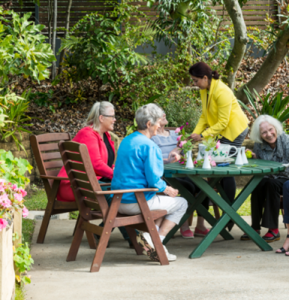
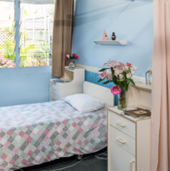 Our AQ Rosalie Nursing Care Centre is a female only nursing home that empowers women to continue to lead an active lifestyle and build strong social networks. Our staff are specially trained in delivering high quality holistic dementia care and our services aim to optimise health.
Our AQ Rosalie Nursing Care Centre is a female only nursing home that empowers women to continue to lead an active lifestyle and build strong social networks. Our staff are specially trained in delivering high quality holistic dementia care and our services aim to optimise health.
We also provide a comprehensive range of Allied Health services including physiotherapy, exercise physiology, occupational therapy, and more.
Lucy’s initial support included reablement sessions with our physiotherapist to help her walk. Whilst this may not always be passible for everyone, Lucy responded well and although initially very stiff and unsteady she managed to walk 20m with the aid of a walking belt, four wheeled walker, and two assists.
Although Lucy’s increasing cognitive decline saw here continue to hallucinate, her agitation levels have reduced considerably in part due to her new routine, regular exercise, and mobility. Today, Lucy’s daughter and son-in-law are pleased their mother is eating and sleeping well, and enjoying strolling around her home, with assistance from her walker, talking with staff and other residents.
Whilst this story is based on actual people and events, Lucy’s (*) name has been changed to respect her and her loved one’s privacy. AQ services are always delivered to ensure that the dignity of older Australians, including people diagnosed with dementia, is respected, and their independence and abilities are supported.
Find out more about AQ and our services to support you and your loved ones, every step of the way, to ensure you are not alone during this important life stage.




